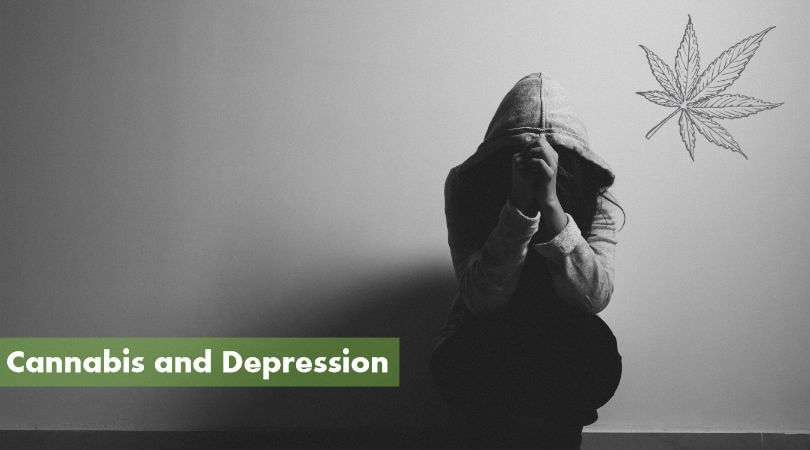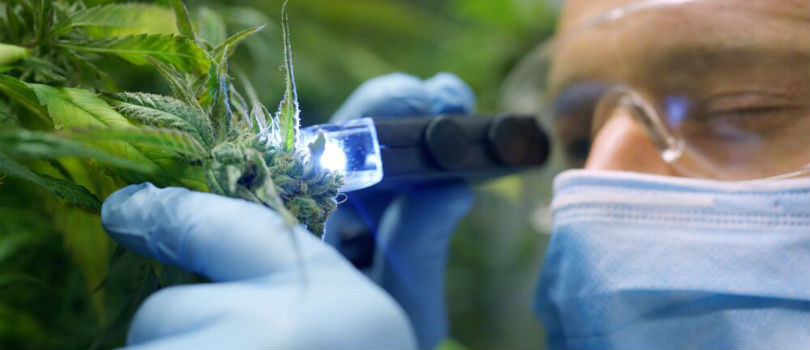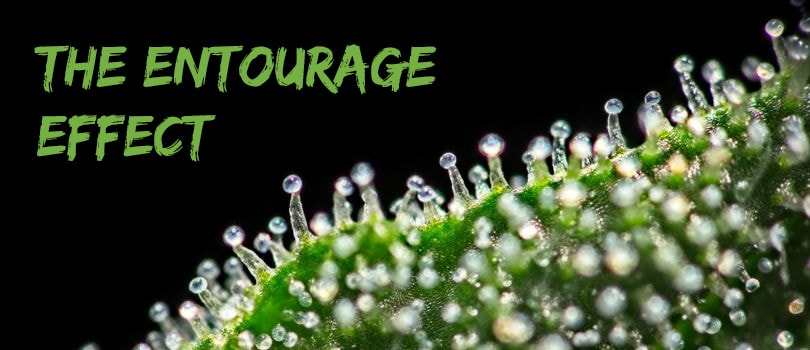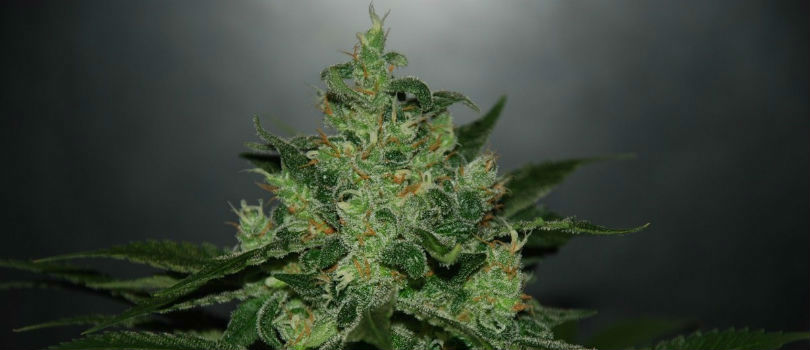If You’re Depressed, Marijuana Might Help
Marijuana has the potential to alleviate symptoms of depression. Depression (major depressive disorder) affects an alarmingly high number of people across the globe. Over 16 million people have been diagnosed with depression in the United States alone, and over 300 million worldwide. Depression can manifest in a wide range of symptoms and can be debilitating enough to render a person legally disabled. Despair, apathy, insomnia, lethargy, anxiety, disordered eating habits, cognitive impairment, social isolation, and even suicide are among these potential symptoms. Research is constantly being done to find more effective ways to treat depression, and marijuana is an intriguing option.
Depression (major depressive disorder) affects an alarmingly high number of people across the globe. Over 16 million people have been diagnosed with depression in the United States alone, and over 300 million worldwide. Depression can manifest in a wide range of symptoms and can be debilitating enough to render a person legally disabled. Despair, apathy, insomnia, lethargy, anxiety, disordered eating habits, cognitive impairment, social isolation, and even suicide are among these potential symptoms. Research is constantly being done to find more effective ways to treat depression, and marijuana is an intriguing option.
Marijuana and depression
People have been using cannabis to alleviate the effects of depression (or simply to elevate mood and encourage sleep, even for those without depression) for hundreds of years. But not much is actually known about what weed does to a depressed brain and body. Some studies suggest that marijuana is an effective anti-depressant, while others report it making depression worse. Clearly, much more research needs to be done! There still haven’t been many studies on the link between marijuana and depression, and certainly, none covering enough ground to give concrete answers on whether cannabis helps or harms. Fortunately, the legal environment around cannabis is changing in the United States. So we can expect to see increased research on how marijuana affects depression (and other conditions) in the years to come.
Most of the research that has been done, so far, has been on how isolated chemical compounds that naturally occur in weed (such as THC and CBD) affect depression. This research alone has shown some promise for marijuana’s future as a treatment option, though results have been somewhat mixed. However, marijuana is a chemically complex plant, and its various compounds work together synergistically, with some chemicals amplifying (or tempering) the effects of others. This is known as the “entourage effect.” In order to understand marijuana’s full potential as a treatment for depression, more whole-plant-based research is necessary.

We can expect to see increased research on how marijuana affects depression in the years to come.
Does cannabis help with depression?
Many users state relief from symptoms related to depression as their primary reason for using cannabis. There have been studies that appear to back up their decision. A 2016 Canadian study showed cannabis users self-reporting reduced symptoms of depression and related conditions (such as stress and anxiety) over the short-term. This particular study did suggest that long-term use of cannabis may exacerbate depression over time (though not stress and anxiety). More research is needed to make a definitive statement on whether or not cannabis can be safely and effectively used against depression long-term. Important factors appear to be the dose amount and the ratio of the cannabinoids in the strain used, particularly CBD: THC.
Q: Does weed help with depression?
A: Some studies suggest that weed effectively reduces symptoms of depression, with the dose amount and chemical composition of the strain being important factors. Research on this topic has been limited so far, and it is still too early to definitively say whether marijuana can be considered a safe and effective treatment option for depression (major depressive disorder).
CBD for depression
CBD (cannabidiol) is a chemical compound found in marijuana that appears to have a positive effect on symptoms of depression. CBD is a cannabinoid, and being so, has an effect similar to the cannabinoids the body naturally produces. These compounds are key in the regulation of bodily functions such as sleep, movement, appetite, and mood. It is possible that the CBD in weed could fill in some of the gaps for people whose brains aren’t making enough of these important chemicals on their own.
A limited amount of research has been done on the link between CBD and depression, so far. But CBD shows very strong potential as a treatment option. Depression actually shrinks the hippocampus – the part of the brain where emotions and memories are processed. The goal of anti-depressant medications is to promote neurogenesis – regeneration of the neurons lost to this atrophy. CBD shows the potential to have the same effect.
CBD is legal in all 50 U.S. states, and is not psychoactive, like marijuana’s best-known component, THC. This means you will not get high using products containing CBD alone. CBD is often ingested (CBD oil is a popular option), but it can also be smoked or used topically in a cream, lotion, or patch.

CBD appears to have a positive effect on symptoms of depression.
CBD depression studies
Several studies done so far on CBD and depression, using rats and mice as test subjects, suggest that CBD is indeed a potent anti-depressant. CBD is consistently shown to have a positive impact on serotonin levels, an anxiolytic (anti-anxiety) effect, and a fast-acting and sustained effect on symptoms of depression. The reactions prompted by CBD in the rodents’ brains were comparable to those created by the use of established anti-depressant medications. While more research needs to be done to determine if these effects will be the same in humans, the research so far is very encouraging!
Q: Does CBD help with depression?
A: While more research needs to be done on CBD’s effect on depression, preliminary studies on animals have shown CBD to positively impact serotonin levels, reduce anxiety, and quickly reduce symptoms of depression.
THC for depression
While more research is needed to fully understand the relationship between THC (Tetrahydrocannabinol) and depression, some studies have suggested that THC in small doses could provide relief. In larger doses, THC can be detrimental, with side effects including increased anxiety, feeling “high,” and the potential for increased depression following long-term use. But in very small doses, THC appears to cause improvements in mood, energy levels, creativity, productivity, and appetite. When used in combination with CBD, the potential negative effects of THC may be lessened. The entourage effect (how THC’s effects are impacted by its interaction with other chemical compounds in marijuana) may play a role in THC’s efficacy against depression.

The entourage effect may play a role in THC’s efficacy against depression.
Medical marijuana for depression
Clinical depression, formally known as major depressive disorder (MDD), is not currently considered a qualifying condition for medical marijuana in any U.S. state. Missouri does list “debilitating psychiatric disorders” as a qualifying condition, though depression is not specifically named. In California, Oklahoma, and West Virginia, prescription of medical marijuana is at the complete discretion of a physician. However, until there is more concrete evidence proving that marijuana relieves depression, some physicians in these states may be unwilling to prescribe it. In Canada and Australia, depression is already a qualifying condition for prescribed medical marijuana.
Q: Can you get medical weed for depression?
A: In Australia and Canada, you can get a medical marijuana prescription for depression. However, in the United States, depression is not currently recognized as a qualifying condition in any state.
Best marijuana strains for depression
There are a very wide variety of marijuana strains, and any given strain will not affect all users in exactly the same way. That being said, certain strains tend to produce similar results in most users. Which strain is best for you will depend on your current needs (Reduced anxiety? Increased energy levels or appetite? Help with sleep?) and you may also need to get a feel for how the chemicals in different strains affect you, personally. Some trial-and-error may be involved to find an effective strain. Many dispensaries will have chemical profiles available so you can read about the composition of the strain you are getting.
A few general guidelines to get you started:
• Strains high in CBD can provide significant relief without imparting a strong “high” or the anxiety that is a common side effect of THC-heavy strains. Higher amounts of CBD in strains that are also high in THC can help to counteract those unpleasant effects. A popular marijuana strain for medicinal use is “Harlequin,” favored for its CBD: THC ratio. Many users find that this strain provides ample relief while keeping their heads clear and paranoia at bay.
• THC-heavy strains are not all bad, though! Many people do find THC to be an effective mood-booster, as well as helpful for increasing appetite and alleviating insomnia.
• The terpenes (aromatic chemical compounds) in a marijuana strain can make a big difference in how it affects you. If your dispensary doesn’t have a profile available for the strains they offer, you can often detect some terpenes from the scent alone. Citrus, lavender, or pine scents and flavors in weed can usually be attributed to the terpenes limonene, Linalool, and alpha-pinene, respectively. All three have been shown to have a calming effect on anxiety. And limonene, in particular, appears to have an anti-depressant effect as well, raising serotonin and dopamine levels in the brain.
• Whether a strain of weed is an Indica or Sativa doesn’t always matter, either. The levels of particular cannabinoids and terpenes in the strain matter far more in discerning how appropriate a strain is for your needs.
• Cannabis strains with chemical profiles likely to help depression with minimal side effect include Harlequin, MediHaze, Jack Herer, Pineapple Express, Cannatonic, MediHaze, Cinex, XJ-13, Lavender, and Sour Tsunami, just to name a few. All of these are higher in CBD than THC. High-THC strains have the potential to worsen depressive symptoms. But some strains, like Classic Cookies or OG Kush, contain high levels of mood-elevating terpenes and may work well for users with a high THC tolerance.
There is a possibility that vaporizing marijuana, an inhalation method in which a concentrated marijuana extract is heated instead of burned, may be more effective than smoking it. The combustion caused by smoking may potentially destroy some of the terpenes and cannabinoids before your body can access them. However, more research is needed to determine to what degree.

Cannabis strains with chemical profiles likely to help depression with minimal side effects. (Jack Herer)
Does marijuana cause depression?
Some studies have suggested a link between long-term marijuana use and the development or worsening of depression. Use of marijuana over a longer period of time has been correlated with higher reported baseline ratings of depression – though symptoms of anxiety and stress did not appear to be altered. At this point, most of the studies suggesting that marijuana contributes to depression have been small and unable to account for many potential factors
However, there have been other studies (also small and unable to account for many control factors), as well as the anecdotal reports of many long-term marijuana users, that appear to directly contradict these findings. Obviously, much more research is needed to draw a definitive conclusion on whether weed causes depression, and if it’s a preventable development.
Q: Does marijuana cause depression?
A: There is no proof that marijuana causes depression, although a few studies have suggested a link between long-term use of marijuana and higher baseline levels of depression than before using it. Feelings of depression are a potential side effect of quitting marijuana after regular use.
Depression after quitting weed
It is common to experience withdrawal symptoms if you regularly use cannabis and suddenly stop, and depression can be one of them. For most people, the level of discomfort in quitting weed is comparable to that of quitting coffee after daily use. Understandably, the higher dose of cannabinoids your brain is accustomed to, the harder the withdrawal symptoms are likely to hit. It can take time (often over two weeks to a month) for the brain’s cannabinoid receptors to reset once they’ve become accustomed to regular doses of THC. The intensity and duration of withdrawal symptoms vary widely from person to person and their reasons for and circumstances surrounding quitting marijuana.
Experience of 3 or more of the following symptoms within a week of abruptly quitting cannabis can indicate CWS (Cannabis Withdrawal Syndrome):
- Irritability
- nervousness/anxiety
- Difficulty sleeping
- Decreased appetite or weight loss
- Depressed mood
- One or more physical symptoms including headache, abdominal pain, shaking, fever, chills, or sweating.
There are currently no approved medications or standard treatment protocols for CWS, a few small studies have explored the effects of various drugs on this condition.
A 2016 Canadian study suggested that an orally administered spray known as Sativex could help with cannabis withdrawal and make tapering off of marijuana easier. Sativex contains a low dose of both THC and CBD and appears to reduce symptoms of marijuana withdrawal without imparting much of a high.
